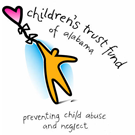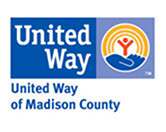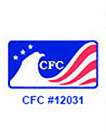Skills Development Pathway
By: Linda Cordisco Steele, M.Ed., LPC
Director of Forensic Interview Training and Services
 Take a moment and recall a time in your life when you were at the very beginning of acquiring a new skill. Think about something that you really wanted to be able to do well and/or was vitally important to your professional development. Developing a new skill set stretches us physically, intellectually, and emotionally. We may alternatively feel confident, confused, excited, discouraged, insecure, and hopeful. Such endeavors call for commitment, hard work, and hours of practice working toward improvement. Recall your journey and the supportive practices that assisted you as well, as ones you wished for that were not available to you.
Take a moment and recall a time in your life when you were at the very beginning of acquiring a new skill. Think about something that you really wanted to be able to do well and/or was vitally important to your professional development. Developing a new skill set stretches us physically, intellectually, and emotionally. We may alternatively feel confident, confused, excited, discouraged, insecure, and hopeful. Such endeavors call for commitment, hard work, and hours of practice working toward improvement. Recall your journey and the supportive practices that assisted you as well, as ones you wished for that were not available to you.
Professionally, a time in my life that comes to mind is when I began my education and training as a therapist. I finished my degree and began working with an insightful and experienced supervisor. I continued to read extensively and participate in ongoing training opportunities. This was, of course, in addition, to seeing clients, doing both the “real work” and engaging in reflection and feedback that continued to grow my skills.
Anyone who has tried to master a new skill, change a long-standing habit, or pursue a new profession knows that big life changes are not accomplished overnight. Nor are they developed with a four-year degree, much less a one-week class, however well planned and executed. How does one develop a new, complex habit? Some strategies apply more generally to new skill development and other strategies are more unique to the chosen advocation.
Forensic interviewing is a complex, skilled endeavor. While practice alone (logging hours in the FI room) doesn’t make perfect; it does make permanent. With repetition habits become locked in for better or worse. Growing true skill requires deep practice (also known as deliberate practice). But deep practice isn’t a piece of cake. Deep practice requires focused energy, commitment, and effort. It’s hard to do it alone. Having access to consistent support and timely, targeted and specific feedback greatly enhances the process.
Practices that can help are:
- Review of newly learned material. No one truly remembers or comprehends everything they are taught in one setting.
- Identify new skills that must be mastered to succeed.
- Practice those skills followed by feedback to help you recognize your successes and identify areas for improvement.
- Engage in deep practice.
NCAC’s Role
NCAC wants to assist forensic interviewers with the challenge of becoming a competent forensic interviewer with a series of trainings and support services. The skill development pathways trainings are focused on core competencies for forensic interviewers. These trainings will enhance the essential fundamental skills necessary for conducting most forensic interviews, however straightforward or complex. In this blog post I will describe two of the most essential skill-based trainings to be followed by another post that will address important trainings to round out an interviewer’s core competencies.
Increasing Skill in Forensic Interviews of Children
 The two-bedrock skill sets for effective interviewing of both disclosing and reluctant children are (1) thoughtful and deliberate use of questions to gain the most accurate and complete information possible and (2) sensitive social support, especially important for reluctant children. The goal is increase knowledge and understanding of the purpose of different question formats, as well as diving into decisions around sequencing question formats. Truly skillful use of questions only results from deep practice followed by targeted and sensitive feedback which leads to correction and improvement. For forensic interviewers not having an opportunity for supervision/coaching from a highly skilled forensic interviewer, this training will help to address that gap.
The two-bedrock skill sets for effective interviewing of both disclosing and reluctant children are (1) thoughtful and deliberate use of questions to gain the most accurate and complete information possible and (2) sensitive social support, especially important for reluctant children. The goal is increase knowledge and understanding of the purpose of different question formats, as well as diving into decisions around sequencing question formats. Truly skillful use of questions only results from deep practice followed by targeted and sensitive feedback which leads to correction and improvement. For forensic interviewers not having an opportunity for supervision/coaching from a highly skilled forensic interviewer, this training will help to address that gap.
Social support goes hand-in-hand with good questioning in assisting all children, particularly those who are reluctant, to feel comfortable to participate more freely in the interview. Many interviewers are unsure about how to balance the use of supportive behaviors and statements with concerns about compromising their neutrality and objectivity. It is confusing after years of being warned about being “too friendly or child-focused” or asking about feelings. This focused training will provide time for greater explanation, demonstrations, addressing questions and practicing the use of social support.
Critical Thinking in the Forensic Interview: Moving from Rote to Responsive Thinking
The ability to engage in critical thinking and make thoughtful decisions throughout the forensic interview is also an essential skill. These decisions begin with pre-interview planning and proceed throughout the interview. Children presenting for an interview come in all shapes, sizes and ages as well as differing cultural backgrounds and abilities. Cases also vary greatly depending on the allegation(s), manner in which the concern arose (outcry or some other way), relationship to the accused, degree of caregiver support, availability of background information and possible evidence. Forensic interviewers must be flexible when working with investigators who need information and have a specific focus, while still advocating for defensible interview practice.
Forensic interviewers are navigating all of these factors and making choices throughout the interview process. This training with bring to light decision points and provide strategies for navigation as well as experiential practice. There will be opportunities for discussion and brainstorming about specific challenges faced by participants.
The next post will round out the core competencies (skill-based pathway trainings) including:
- Getting the best Information from a Narrative Child
- Strategies for Interviewing a Reluctant Child Witness
- More Than One Interview: When, Why, and How
- Supervision of Child Forensic Interviewers
There is no requirement that you complete these trainings in order; but it is the collective recommendation from the NCAC forensic interview instructors that the sequence provides a thoughtful roadmap for continually building skills and competence.
Personally, while all pathways are important, this is the one that I am most excited about as I believe it fills a large gap that follows the initial training in forensic interviewing. This is especially true for those interviewers who do not have access to highly skilled supervisors committed to helping them develop their practice.
Stay tuned for more.
Keep thinking, keep reading, keep growing!










